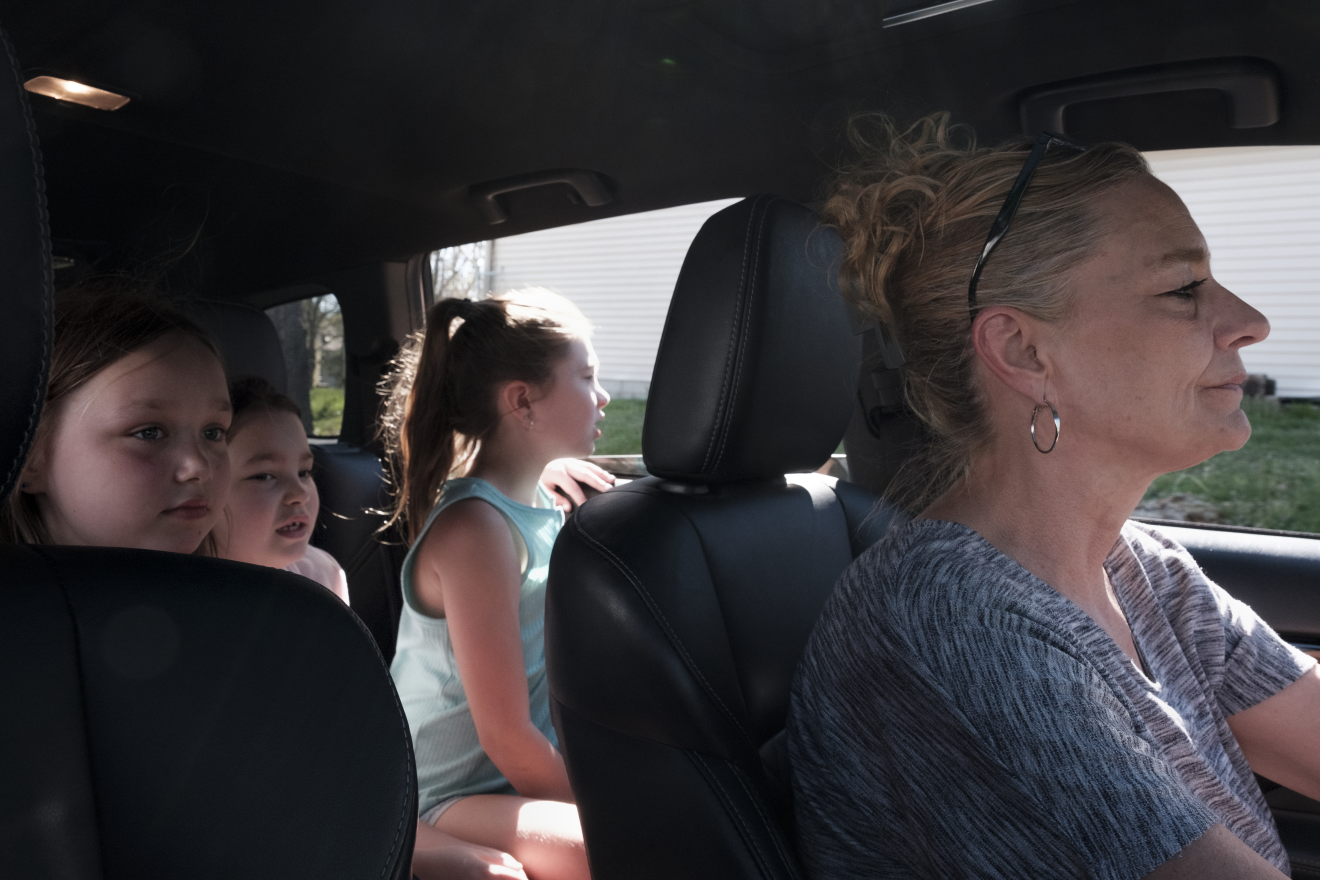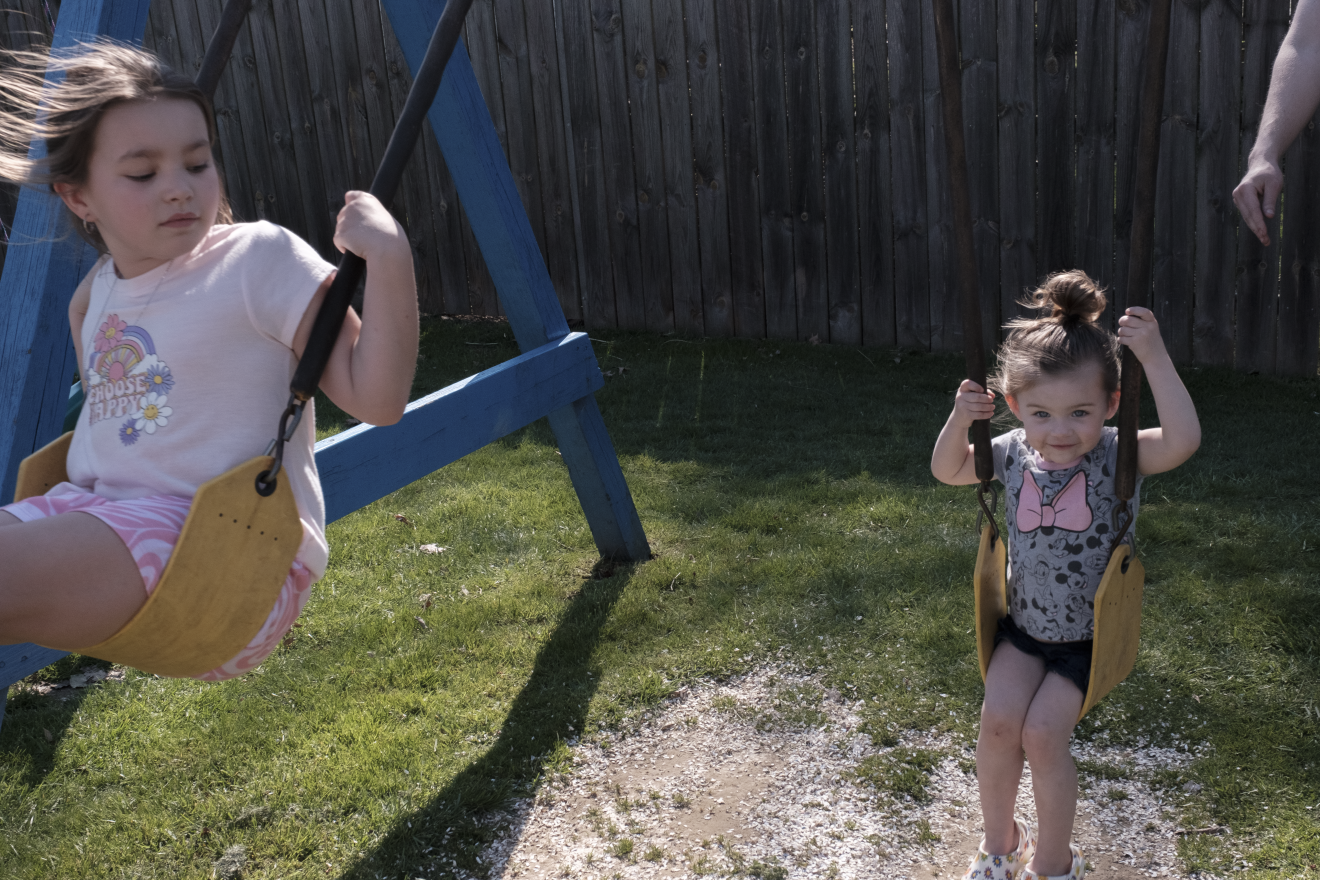
For residents of East Palestine, Ohio, the past four months have been filled with uncertainty since a Norfolk Southern train carrying hazardous chemicals derailed and burned. The company is paying to temporarily relocate residents until the massive cleanup effort is complete. But uncertainty over when that will be has left some residents who opted to leave in a state of limbo. As the months grind on, some residents are even tempted to throw caution to the wind just to return home.
Mary Lou Sovich, her daughter Renee Funkhouser and their cat, Ashes, have been living in a Quality Inn in North Lima. It’s a far cry from their tidy ranch house on East Taggart Street just a few hundred yards from the site of the derailment.

They were on the fence about whether to stay or go until one morning in early March when cleanup crews began digging up the soil under the tracks. The smell became so unbearable it stung Sovich’s throat. That was when they knew it was time to leave.
The hotel is not ideal, but it’s the best option for what they need.

Funkhouser says she’s grateful Norfolk Southern is covering their living expenses while they’re relocated, but it’s not home. That’s something that can’t be replicated.

Back in East Palestine
Greg Mascher keeps the calendar on his kitchen wall set on Feb. 3, the night of the derailment. Greg and Traci Mascher are the primary caretakers for their granddaughters, Brayla, Kayton and Raylix.
That night they heard about the derailment and went to investigate. At first they thought a coal car had derailed and burned, but they soon realized they were tanker cars.
Traci called her cousin, a cancer researcher who lives in California, and she offered a warning in no uncertain terms: Get out of town now.
She opened her vacant home in Berkeley Springs, West Virginia, to them until it was safe to return home. It’s a safe haven high in the mountains. The air is clean and cool, and the mountain stream near the house doesn’t smell anything like Sulphur Run in East Palestine.
They’re grateful for this as life back home continues. The girls are doing virtual learning, but they still have to take state tests in person. This means Greg and Traci need to pack for five people and make the three hour drive back home.
“This is the hardest thing I’ve ever had to do” says Traci.


Adapting to distance learning all over again and commuting might be manageable if it weren’t for the uncertainty, they say.
They don’t know when it will be safe to return to their home. The Maschers hoped there would be a clear sign - like verification from independent testing. But it hasn’t happened that way.
As the weeks turned into three agonizing months, they decided they would simply go back home and see what happens. If they felt fine, they were willing to consider staying, but if they got sick, they would leave.

They started feeling ill as soon as they were back in town. Since then they’ve had coughing fits, difficulty breathing, and they vomit nearly every day. Others who live near the tracks report similar symptoms.
The Maschers’ seven-year-old granddaughter Raylix says all of the kids in her class are coughing. This is the clear sign that they didn’t want.

Greg waits until his granddaughters are in bed before he lets himself cry. If it weren’t for the girls, Greg and Traci would stay. East Palestine is home and their roots here are deep. Greg’s second great grandfather, Adolph Mascher, was mayor.

Traci is willing to stay because, she says, “We’ve lived our lives.”
As comfortable as they are with that scenario for themselves, they refuse to risk the health of their granddaughters.
It’s unclear when - or if - it will be safe for these families to return to their homes. In May, Norfolk Southern CEO Alan Shaw announced that the company would compensate homeowners within a five-mile radius for property value losses because of the derailment. Both families are waiting for the cleanup to be complete and some kind of sign that it’s safe to return.
Surrounded by uncertainty, these families say, it feels like time stopped on Feb. 3. And for residents who chose to relocate, they’re living in limbo - frozen in an endless present.
Thursday, Feb. 1, 2024: An earlier version of this story incorrectly identified the Sovich/Funkhouser cat as Dusty. Its name is Ashes.



